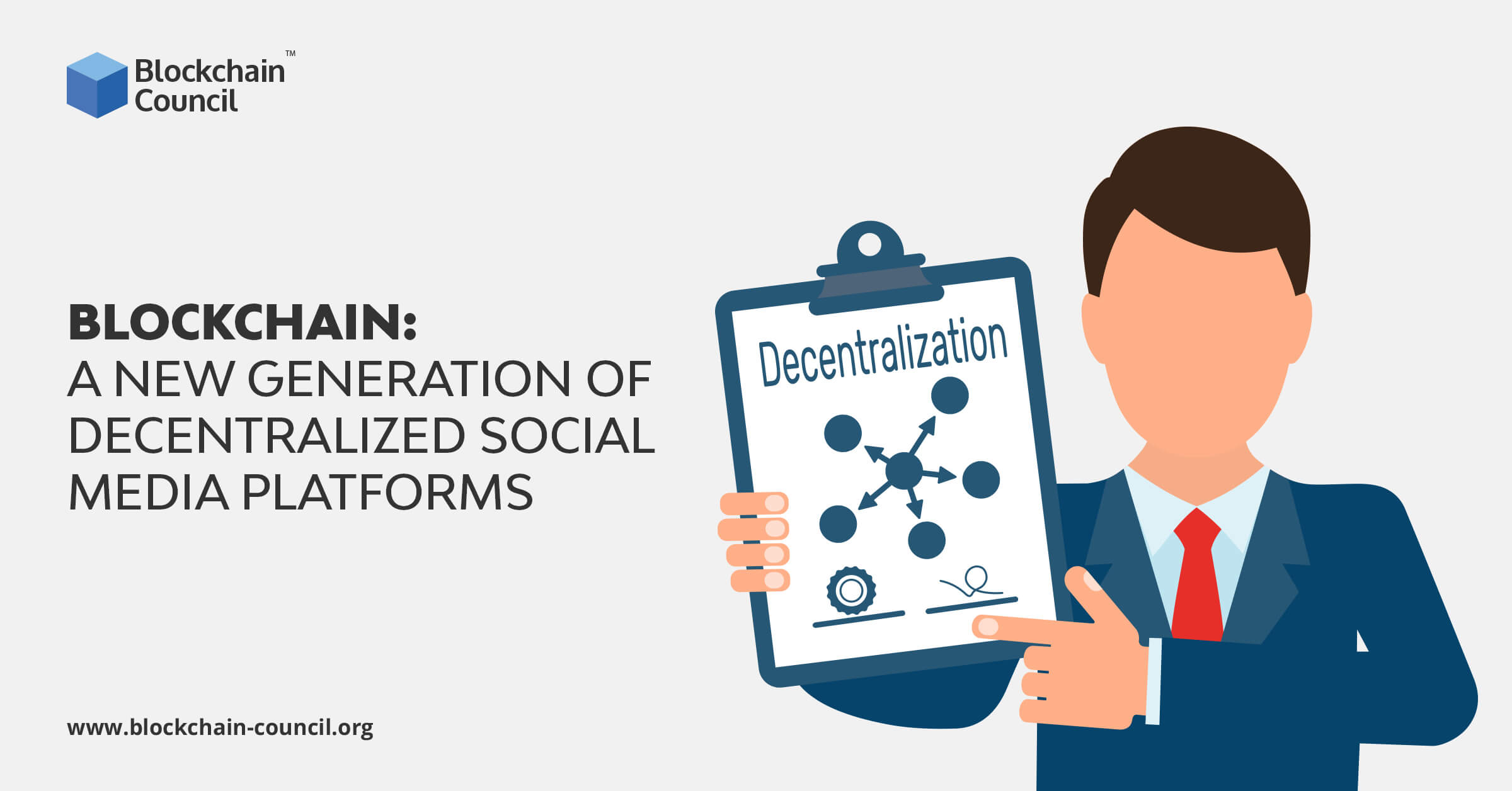The Role of Blockchain in Social Media

- Understanding the basics of blockchain technology
- Exploring the impact of blockchain on social media platforms
- Enhancing security and transparency in social media through blockchain
- The potential of blockchain to revolutionize social media advertising
- Challenges and opportunities of integrating blockchain in social media
- Case studies of successful blockchain implementations in social media
Understanding the basics of blockchain technology
Blockchain technology is a decentralized, distributed ledger system that securely records transactions across a network of computers. Each transaction is stored in a “block” that is linked to the previous block, forming a chain of blocks – hence the name “blockchain.” This technology ensures transparency, security, and immutability of data, making it an ideal solution for various industries, including social media.
In the context of social media, blockchain technology can revolutionize how data is managed and shared online. By utilizing blockchain, social media platforms can enhance user privacy, combat fake news, and provide a more secure environment for interactions. The decentralized nature of blockchain eliminates the need for a central authority, reducing the risk of data breaches and unauthorized access.
One of the key features of blockchain technology is its ability to create smart contracts. These self-executing contracts automatically enforce and verify the terms of an agreement, without the need for intermediaries. In the realm of social media, smart contracts can be used to regulate content distribution, ensure fair compensation for content creators, and prevent censorship.
Moreover, blockchain technology enables users to have more control over their data. With blockchain-based social media platforms, individuals can securely store their personal information and decide who has access to it. This shift towards user-centric data management can help address concerns about data privacy and security that have plagued traditional social media networks.
Overall, understanding the basics of blockchain technology is crucial for grasping its potential impact on social media. By leveraging the decentralized, transparent, and secure nature of blockchain, social media platforms can enhance user trust, promote authenticity, and foster a more engaging online community. As blockchain continues to evolve, its role in shaping the future of social media is likely to become increasingly significant.
Exploring the impact of blockchain on social media platforms
Blockchain technology has the potential to revolutionize social media platforms by enhancing security, transparency, and decentralization. By utilizing blockchain, social media platforms can provide users with greater control over their data and privacy. This technology allows for the verification and validation of information shared on social media, reducing the spread of fake news and misinformation. Additionally, blockchain can enable users to be rewarded for their contributions to the platform through tokens or cryptocurrencies.
One of the key benefits of blockchain in social media is the ability to create immutable records of user interactions, content creation, and transactions. This can help in building trust among users and combating issues such as bots and fake accounts. Furthermore, blockchain can facilitate peer-to-peer transactions and micropayments, allowing content creators to monetize their work directly without the need for intermediaries.
Another significant impact of blockchain on social media platforms is the potential for creating decentralized social networks. These networks operate on a distributed system, eliminating the need for a central authority to control user data and content. This can lead to a more democratic and censorship-resistant social media environment where users have more autonomy and ownership over their online presence.
In conclusion, the integration of blockchain technology into social media platforms has the potential to address many of the current challenges facing these platforms. By enhancing security, transparency, and decentralization, blockchain can empower users, foster trust, and create new opportunities for monetization. As the technology continues to evolve, it will be interesting to see how social media platforms leverage blockchain to improve the overall user experience.
Enhancing security and transparency in social media through blockchain
Blockchain technology has the potential to revolutionize social media platforms by enhancing security and transparency. By utilizing blockchain, social media platforms can ensure that user data is securely stored and cannot be tampered with. This increased security can help prevent data breaches and unauthorized access to personal information.
Furthermore, blockchain technology can improve transparency on social media platforms by providing a decentralized system where all transactions and interactions are recorded on a public ledger. This means that users can verify the authenticity of content and track the source of information, reducing the spread of fake news and misinformation.
Overall, integrating blockchain technology into social media platforms can help build trust among users, protect their data, and create a more secure and transparent online environment. As social media continues to play a significant role in our daily lives, leveraging blockchain technology can lead to a more reliable and trustworthy digital experience for all users.
The potential of blockchain to revolutionize social media advertising
Blockchain technology has the potential to revolutionize social media advertising by providing transparency, security, and efficiency in the way ads are delivered to users. With blockchain, advertisers can ensure that their ads reach the intended audience without the risk of fraud or manipulation. This can help build trust between advertisers and consumers, leading to more effective advertising campaigns.
One of the key benefits of using blockchain in social media advertising is the ability to track and verify ad impressions and clicks in real-time. This can help advertisers optimize their campaigns and ensure that they are getting the best return on investment. Additionally, blockchain can help eliminate intermediaries in the advertising process, reducing costs and improving the overall efficiency of the system.
By leveraging blockchain technology, social media platforms can also offer users more control over their data and privacy. Users can choose to share their data with advertisers in exchange for rewards, creating a more transparent and mutually beneficial relationship. This can help address concerns about data privacy and security in the digital advertising industry.
Challenges and opportunities of integrating blockchain in social media
Integrating blockchain technology into social media platforms presents both challenges and opportunities for the industry. One of the main challenges is the scalability of blockchain networks, as they can struggle to handle the high volume of transactions that occur on popular social media sites. However, this challenge also presents an opportunity for developers to create more efficient and scalable blockchain solutions.
Another challenge is the issue of user privacy and data security. Blockchain technology can provide a more secure way to store and share data, but it also raises questions about how much control users have over their own information. This challenge can be addressed by implementing transparent data management practices and giving users more control over their personal data.
On the other hand, integrating blockchain in social media opens up new opportunities for monetization and content ownership. Blockchain technology allows for the creation of unique digital assets that can be bought, sold, and traded on social media platforms. This can create new revenue streams for content creators and provide users with more control over their own content.
Case studies of successful blockchain implementations in social media
Several successful blockchain implementations have been observed in the realm of social media, showcasing the potential of this technology to revolutionize the way we interact online. These case studies highlight the various ways in which blockchain can enhance security, transparency, and decentralization in social media platforms.
- One notable example is Steemit, a blockchain-based social media platform that rewards users for creating and curating content. By leveraging blockchain technology, Steemit ensures that content creators are fairly compensated for their contributions, while also preventing censorship and manipulation of content.
- Another interesting case is that of Voice, a social media platform developed by Block.one. Voice aims to combat issues such as fake news and bots by using blockchain to verify the identity of users and ensure the authenticity of content shared on the platform.
- Furthermore, Minds is a blockchain-based social networking platform that prioritizes user privacy and data ownership. By storing user data on a decentralized blockchain network, Minds gives users full control over their information and protects it from being exploited by third parties.
These case studies demonstrate the diverse applications of blockchain in social media, from incentivizing content creation to combating fake news and protecting user data. As more platforms explore the potential of blockchain technology, we can expect to see further innovations that enhance the user experience and promote a more secure and transparent online environment.
